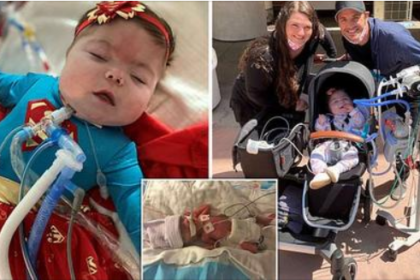Hospitals are places where people of all ages, races, religions and cultures go to receive medical treatment.
Most of the time, these places of healing administer specific types of care based on the sex and gender of each patient, reserving pregnancy care and scans for anyone who clearly identifies as a female.
But now, one hospital trust is starting a controversial new policy that has people talking.
It focuses on treating men in the same way as women, even despite the biological differences of the two sexes.
Men Being Asked If They’re Pregnant Before Undergoing Scans in England

The new policy has taken effect at a hospital in Liverpool, England, which asks “all patients under the age of 60, regardless of how you may identify your gender” whether they could be having a baby.
The change in policy comes on the heels of new laws governing medical procedures involving radiation, which have removed the term “female” and replaced it with “individuals.”
The change was made in regards to possible dangers that radiotherapy, diagnostic imaging and nuclear medicine may pose unborn children, according to a report from The Independent.
The hospital was identified as The Walton Center NHS Trust, which first opened its doors in 1941 and is considered to be a “major neurology hospital.”

New Rule Designed to Establish Whether Patients Are Pregnant
The goal of the new rule is to establish whether a patient is pregnant before carrying out procedures to minimize the risk.
According to The Society of Radiographers, it is important to ask all patients for any possibility of pregnancy.
The Society has advised medics to ask what sex patients were assigned at birth and then question them on their pregnancy status if they were born female.
The goal is “to move away from the long-standing practice of only enquiring about pregnancy with those that present as female.”
Critics have claimed that the new procedures are not necessary.
“This is an example of why we need both sex and gender clearly recorded for patients,” said Kat Barber, of the campaign group Sex Not Gender Nurses and Midwives.
“We do not need to ask all patients if they are pregnant. We need to ask females, hence why it is important to know if the person we are providing care for is female whilst also respecting their gender identity,” she added.





